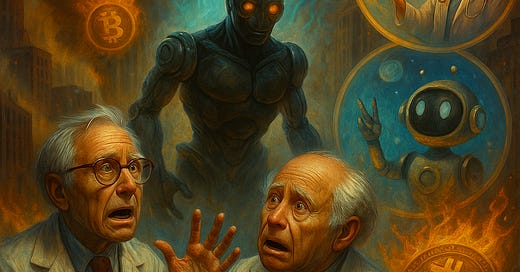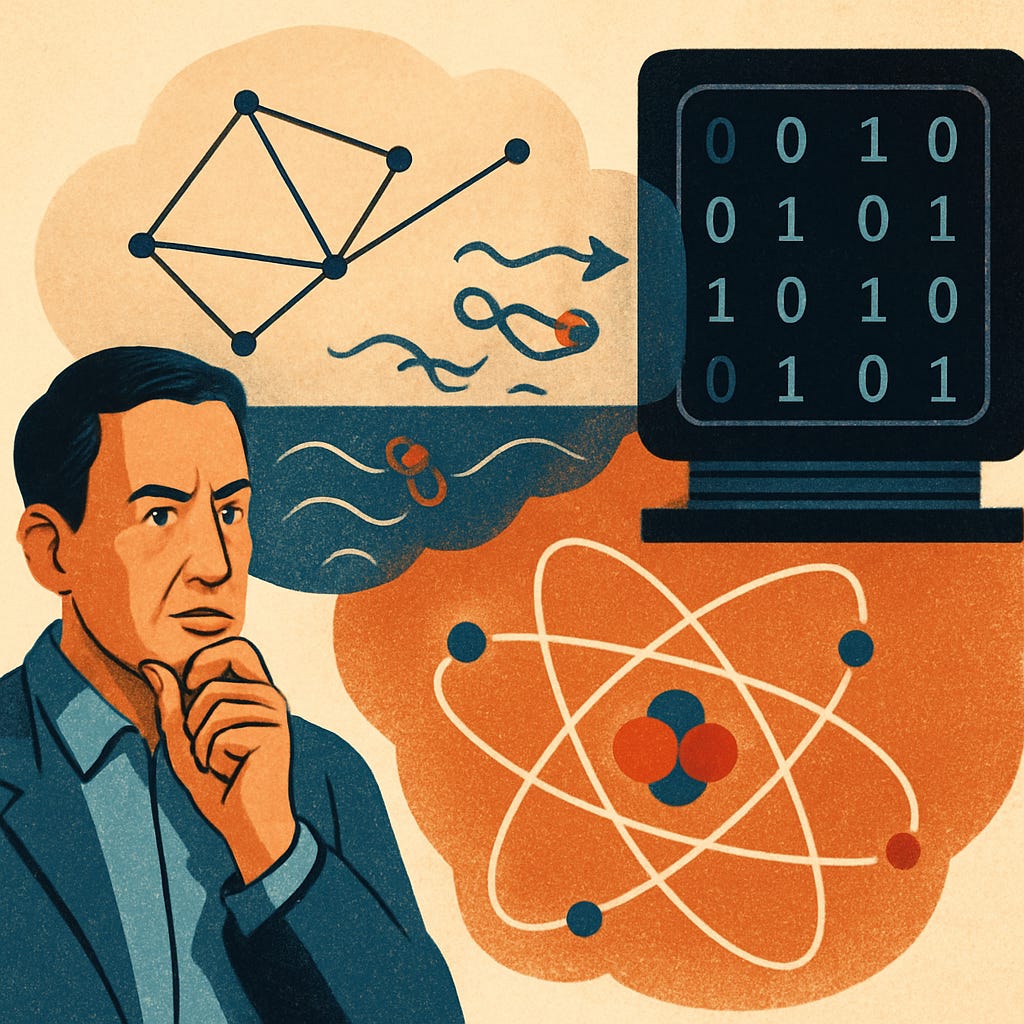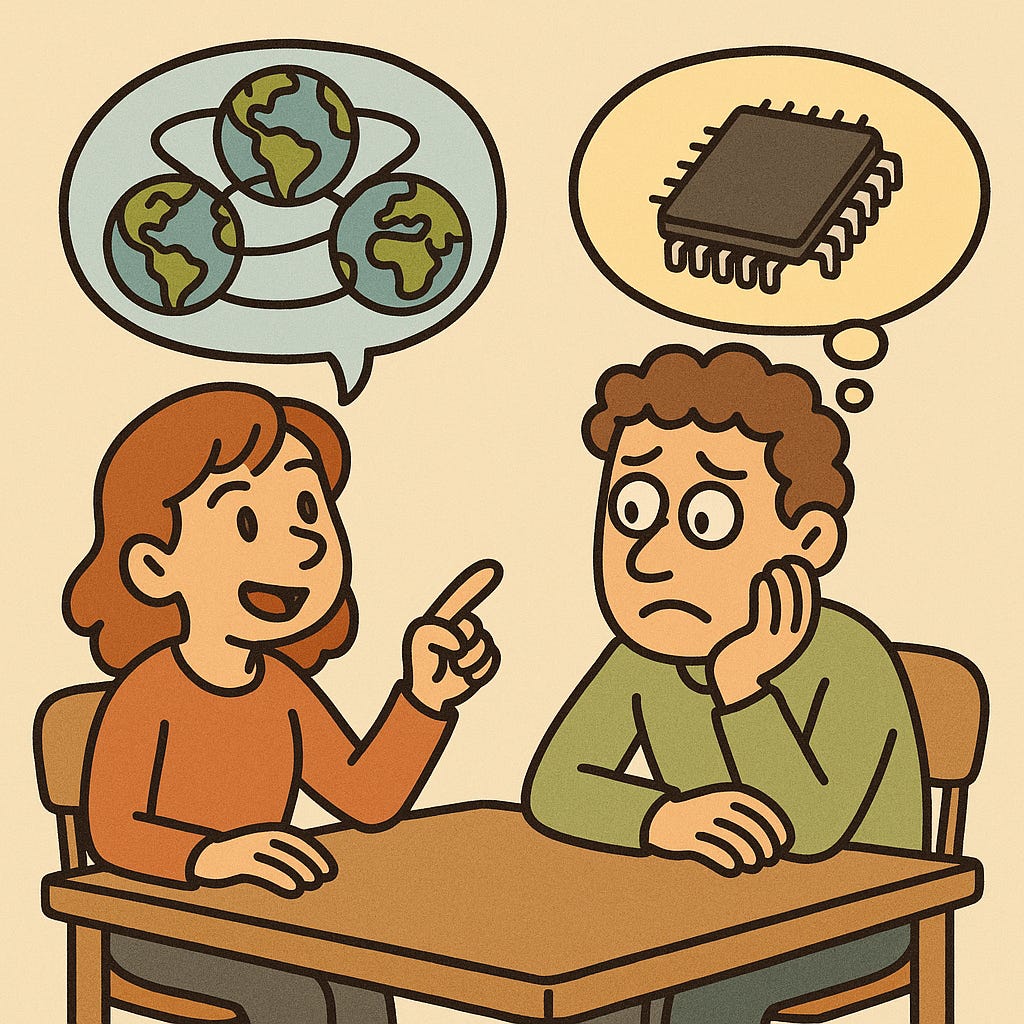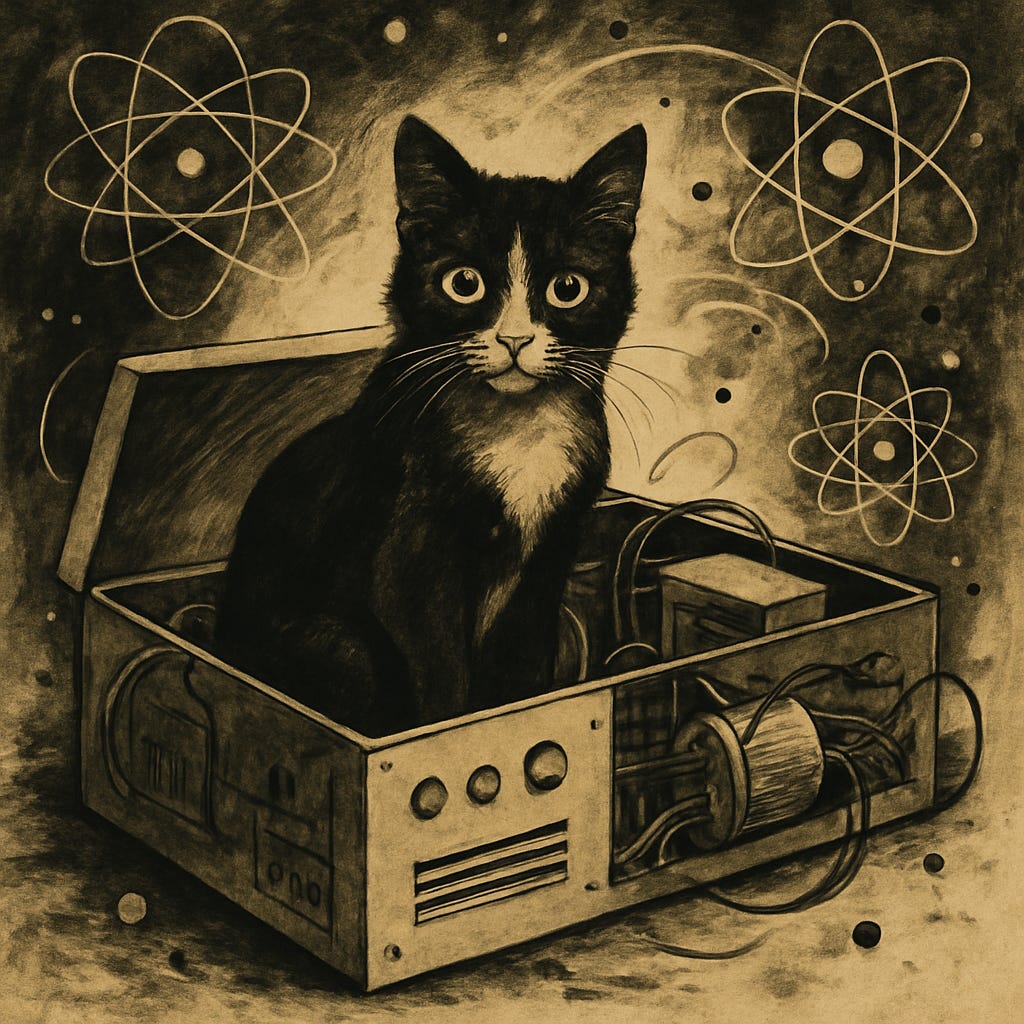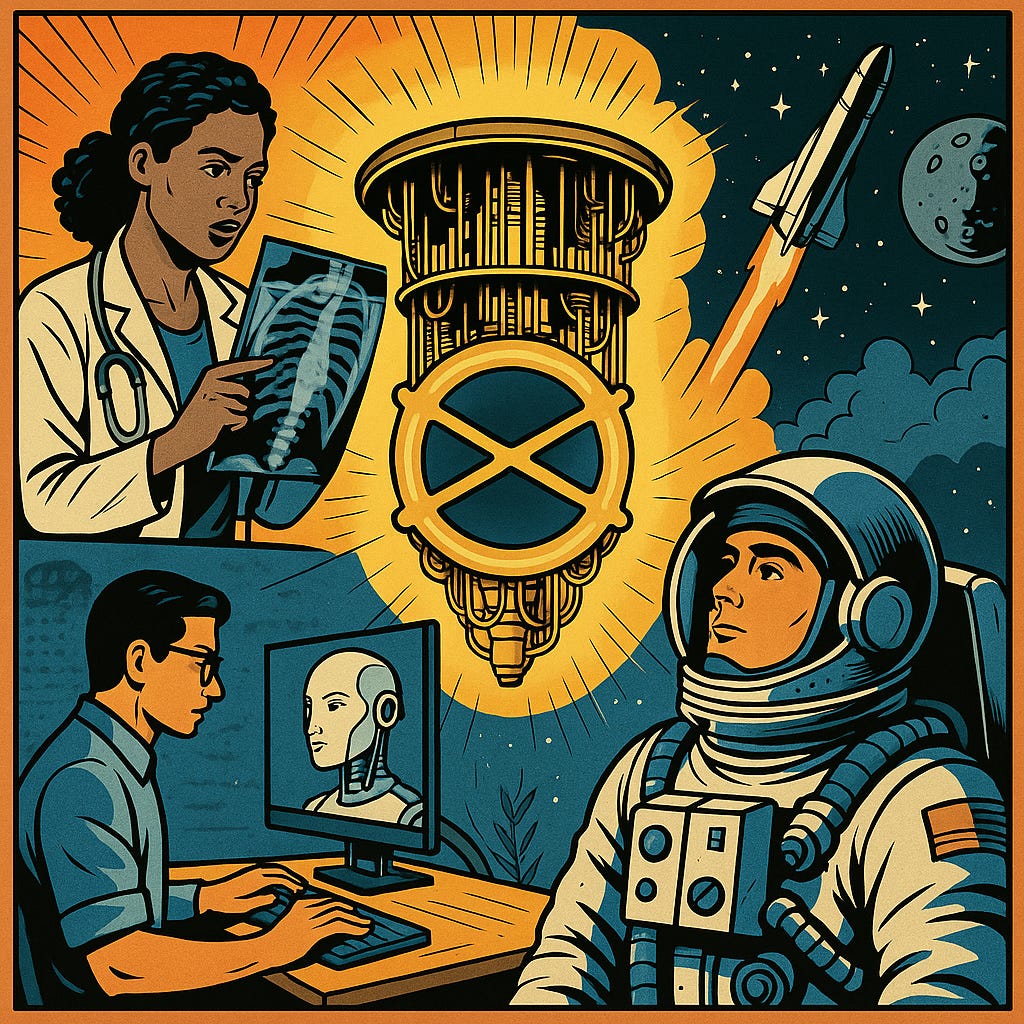Will Quantum Computing prove the multiverse and destroy cryptography?
Quantum supremacy is here. So is the chaos.
Quantum supremacy
Last December, Google published an article in “Nature” about a computer chip named Willow.
The 105-qubit superconducting chip achieved quantum supremacy —a milestone that refers to a quantum computer solving a problem impossible for classical machines. Better yet, Willow was stronger and more stable than any previous model.
The results came with caveats—like the fact that Willow currently has no practical application. Still, the breakthrough was hailed as a technological leap, paving the way for advances in AI, science, and cybersecurity. It could even, possibly, bring about the death of cryptocurrency.
If the story had ended there, it might’ve stayed confined to physicists, engineers, bureaucrats, and tech writers. But then Google’s researchers ventured into the mystic.
Interstellar
The report claimed Willow solved the calculation in under five minutes—a task that would take the world’s fastest supercomputer 10 septillion years.
As Hartmut Neven, founder of Google Quantum AI, put it: “a number that exceeds known timescales in physics and vastly exceeds the age of the universe.”
And then Neven went further. He suggested that the sheer magnitude of the number “lends credence to the notion that quantum computation occurs in many parallel universes, in line with the idea that we live in a multiverse.”
That caught everyone’s attention. The media ran with it. Joe Rogan loved it. Even the arts have latched onto quantum computing’s mysterious allure.
But the scientific consensus? Neven’s statement was nonsense—not evidence of the “many-worlds interpretation,” which posits that every quantum event spawns a new reality.
Oddly enough, I find the multiverse claim easier to understand than the mathematics behind the chip.
Consensus
To sort through the noise, I reached out to science writer Joe Pappalardo.
“Science is tricky,” he told me. “Always question the hype.”
He remembers what happened. Soon after the Nature article, rumors began swirling that Google’s quantum breakthrough had proved the existence of parallel universes.
He’s seen it before: a real scientific achievement hijacked by a flashy, speculative idea.
“Parallel universes sound cool, but they aren’t needed to explain quantum computing,” he said. “This isn’t about proving the existence of Spock with a goatee. It’s about making quantum computing stable enough to actually work.”
It’s not uncommon for scientists to indulge in a little speculative flair. But, he added, “that’s all people are going to remember. The actual breakthrough—the thing that could change the world—gets buried under a wave of sci-fi speculation.”
The chip doesn’t need alternate universes to operate this fast: “It just needs good entanglement.”
Google’s accomplishment, he said, is revolutionary enough on its own.
“Everyone’s focused on the cool factor,” he added. “But we need to talk about the consequences. What happens when cryptography collapses? What happens when AI becomes so powerful that humans can’t keep up? These aren’t sci-fi questions anymore. They’re coming—whether we’re ready or not.”
Prince of Darkness: What Quantum Computing Actually Does
“Ever seen Prince of Darkness?” Pappalardo asked. “It’s a John Carpenter movie of dubious worth,” he said. “But the screenplay is genius—it blends spiritualism, religion, and quantum physics. There’s a line about how conventional logic breaks down at the subatomic level.”
That, he explained, is where quantum computing lives.
It exists in a realm where logic collapses, where something can be both a 0 and a 1 at the same time.
It shouldn’t be possible. But it is. And the result is computing power so staggering it makes classical AI look like crayon art.
“Let me pause to see if your brain is melted,” he said. “But then you realize—it’s not supposed to make sense. It’s all Schrödinger’s cat. It’s the realm of the spooky atomic particle, where logic breaks down.”
Three likely outcomes
Fields like medicine, artificial intelligence, and space exploration will be transformed by quantum computing.
“Imagine running simulations of every possible molecular combination to discover new drugs—in minutes instead of decades,” Pappalardo said.
In AI, quantum computing will allow machine learning models to analyze vastly larger datasets at unprecedented speeds.
“Imagine AI that learns instantly,” he said. “It’s the difference between a car and a jet engine.”
Currently, AI models are limited by the time it takes to process massive datasets. With quantum computing, that bottleneck disappears. Machine learning could become exponentially more powerful overnight.
In space exploration, quantum computing could revolutionize navigation, planetary mapping, and the simulation of complex gravitational forces.
But the invention of the ship is also the invention of the shipwreck.
Quantum computing could just as easily accelerate deepfakes, expand surveillance, and embolden cybercrime.
And, Pappalardo warns, it will almost certainly bring about the death of cryptography.
RIP Cryptocurrency
Modern cryptography relies on the fact that classical computers take centuries to solve certain mathematical problems.
Quantum computers can solve those same problems in less than a microsecond.
“If you can spin a billion locks a billion times in a fraction of a second, then no lock is safe,” Pappalardo said. “That’s what quantum computing can do to cryptography.”
This isn’t a theory. It’s a near-certainty.
Governments and corporations are already racing to develop post-quantum cryptography—entirely new ways of securing data. But most of the internet still depends on encryption methods that a quantum computer could shred in an instant.
And it gets worse: if encryption fails and AI soars, we may face a world where no data is safe, no transaction is private, and human decision-making is permanently outpaced by machines.
“It’s not a stretch to say that quantum computing could revolutionize everything,” Pappalardo said. “But are we ready for that?”
Dark Side of the Moon
Despite the hype, quantum computing isn’t ready for primetime—yet.
“It’s a toddler that’s about to start running,” Pappalardo said. “Right now, it’s still wobbly. But once it gets going, there won’t be any stopping it.”
The next few years will bring incremental improvements—greater stability, fewer errors, and eventual commercial viability.
But Pappalardo’s concern is that we aren’t having the right conversations about what quantum computing will actually mean.
Ze Terminator
Naturally, I asked about the robot apocalypse. If quantum computing pushes AI forward, are we getting closer to the Hollywood scenario?
“Probably,” Pappalardo deadpanned. “Everything seems to.”
Keep reading with a 7-day free trial
Subscribe to FREEDRIFT to keep reading this post and get 7 days of free access to the full post archives.

